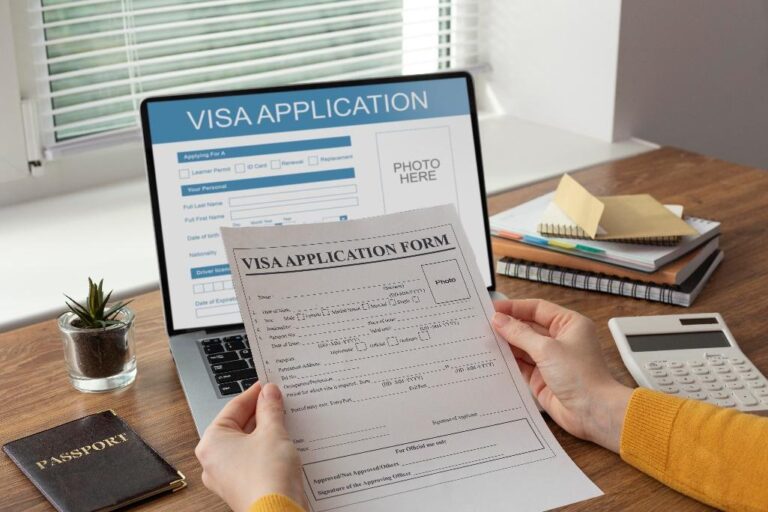The benefits of having a Nomad Visa are gaining more attention as remote work becomes the new normal. As the digital lifestyle continues to thrive, more professionals are swapping office cubicles for laptops on beaches, mountain cabins, and cozy cafes in vibrant cities around the world. A Nomad Visa is your golden ticket to work legally while exploring new destinations. Let’s dive into why this travel-friendly document is changing the game for remote workers.

What Is a Nomad Visa?
A Nomad Visa, also known as a digital nomad visa, allows remote workers to live and work legally in a foreign country without applying for a traditional work visa. These visas are offered by many countries looking to attract global talent and boost their economy through long-term stays.
Benefits of Having a Nomad Visa
- 1. Legal Work Authorization
One of the most significant benefits of having a Nomad Visa is legal permission to work. Instead of constantly renewing tourist visas or facing immigration issues, a Nomad Visa gives you peace of mind to focus on your job while enjoying a new country.
- 2. Stability for Remote Workers
With a Nomad Visa, remote workers can establish temporary homes, open local bank accounts, get better accommodation deals, and integrate into communities. This stability can boost productivity and make remote working more enjoyable.
- 3. Access to Remote Work Opportunities Globally
Having legal residency in a new country opens doors to local and international remote work opportunities. You’re not just limited to one country; you can collaborate with clients and companies worldwide, expanding your professional network.
- 4. Better Work-Life Balance
Living in a new country with a slower pace of life and lower living costs can improve your quality of life. Many people find that Nomad Visas help them discover the ideal environment for both productivity and relaxation.
- 5. Boost to Your Career and Skills
Working remotely across different countries can strengthen soft skills like adaptability, time management, and cross-cultural communication. You’ll also learn how to balance life on the road with professional growth.
How to Qualify for a Nomad Visa
Each country has its own set of eligibility criteria, but here are some common requirements:
- Proof of remote employment or freelance work
- Minimum monthly income (often ranges between $2,000–$5,000)
- Valid health insurance
- Clean criminal record
- Valid passport with several months of validity remaining
Countries Offering Nomad Visas
Many countries have rolled out Nomad Visas in recent years. Some of the most popular destinations include:
- Dubai (UAE) – Offers modern amenities and tax benefits
- Estonia – Among the first to introduce a digital nomad visa
- Portugal – Known for great weather, low cost of living, and community
- Barbados – Offers a 12-month Welcome Stamp visa
These countries also present great remote work opportunities, making them attractive for digital nomads.
Pro Tips: Make the Most of Your Nomad Visa
- Research Before You Go: Understand visa fees, living costs, and internet speed in your chosen country.
- Use Co-working Spaces: They’re perfect for meeting other remote workers and staying productive.
- Manage Your Time Zones: If you work with clients from different time zones, plan your schedule smartly.
- Have a Backup Plan: In case of policy changes or emergencies, know your exit options or visa extensions.
- Embrace Local Culture: Try learning the language or attending local events — it makes the experience richer.
FAQs
What are the benefits of having a Nomad Visa compared to a tourist visa?
A Nomad Visa gives you legal permission to work in a foreign country, unlike a tourist visa, which restricts employment. It allows for longer stays and access to services like housing and banking. With this visa, you avoid legal issues that may arise from working on a tourist permit. You can also enjoy a more stable lifestyle while working remotely. Plus, it unlocks better remote work opportunities across countries.
Can I bring my family with me on a Nomad Visa?
Yes, many countries allow you to bring your spouse and children under dependent visas. You may need to provide proof of extra income and health insurance for them. Some countries also require educational arrangements for school-age kids. It’s important to check specific rules in your destination country. Planning ensures a smooth move for the entire family.
What happens if I change jobs while on a Nomad Visa?
Most Nomad Visas are not tied to a specific employer but rather your status as a remote worker. If you switch jobs but remain remotely employed, your visa usually stays valid. Some countries may ask for updated documentation. Make sure you still meet the income or work criteria. Always notify immigration if required under your visa terms.
Do I need to pay local taxes with a Nomad Visa?
Whether or not you pay local taxes depends on your length of stay and the country’s rules. Some nations offer tax-free conditions for digital nomads, while others don’t. If you stay beyond a set number of days, you may be considered a tax resident. It’s smart to talk to a tax expert to avoid surprises. Knowing the rules helps you plan better financially.
Is it easy to renew a Nomad Visa?
Renewal policies vary from country to country. Some nations allow simple extensions if you continue to meet the work and income requirements. You’ll likely need to submit proof of employment and insurance again. It’s important to apply before your current visa expires. Staying organized with documents helps the process go smoothly.
Conclusion
In today’s world, where remote work is becoming the norm, the benefits of having a Nomad Visa are undeniable. From legal work status and global mobility to improved quality of life and access to remote work opportunities, these visas empower professionals to blend travel and work like never before. If you’ve been dreaming of working from a seaside cafe in Portugal or a bustling coworking hub in Bali, a Nomad Visa could be your perfect companion.







